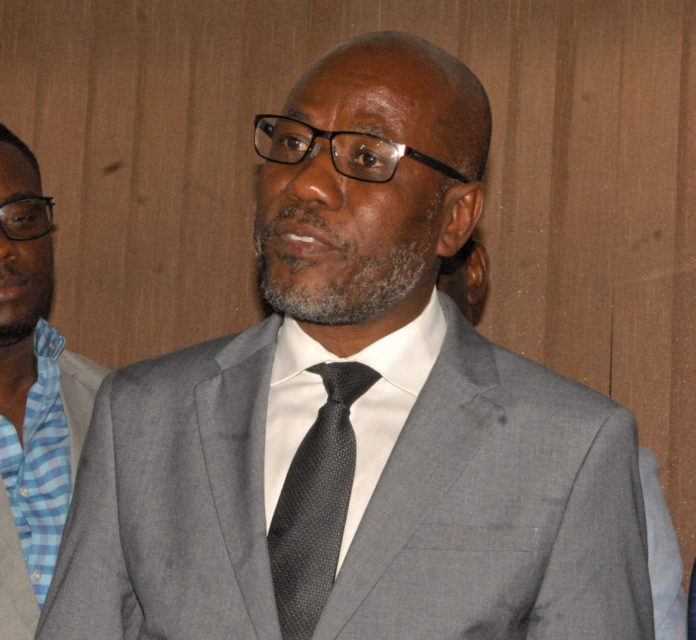On Wed., Jan. 22, 2020, Haiti learned via a presidential decree published in the official journal Le Moniteur that the new Director General of the government’s Unit for the Fight against Corruption (ULCC) is Rockefeller Vincent. He replaced the flamboyant and, it seems, incorruptible lawyer Claudy Gassant, who headed this institution for less than two months. He was a meteor that streaked across the ULCC’s sky.
Named by Presidential decree in Le Moniteur No. 203 of Nov. 29, 2019 and installed on Dec. 3, 2019, in the midst of last year’s demonstrations that “locked down” Haiti, Claudy Gassant spent his 50 days at the ULCC’s helm in a pitched battle with several government officials. The arrival of this troublemaker at the head of an agency whose role is to put state officials on the straight and narrow was, it must be said, a big surprise for the whole country.
Nobody had expected and even imagined that this former state prosecutor (Commissaire du gouvernement), who was very critical of President Jovenel Moïse, would be appointed the director of an authority which can so effectively probe the powers in place. If all his friends and relatives were shocked to see Gassant appointed to the ULCC, he himself was even more surprised to be approached by the President of the Republic offering him the post. Whether it was a trap or a challenge, no matter! The fiery lawyer accepted the appointment without hesitation because, for him, it represented an opportunity.
But it was also by surprise and amid controversy that the whole country learned of Gassant’s firing. He too was taken aback, since no government official had warned him that he would be dismissed. It was via social media networks that Gassant discovered that he was no longer the ULCC chief and that his successor had already been appointed, his name published in the official journal.
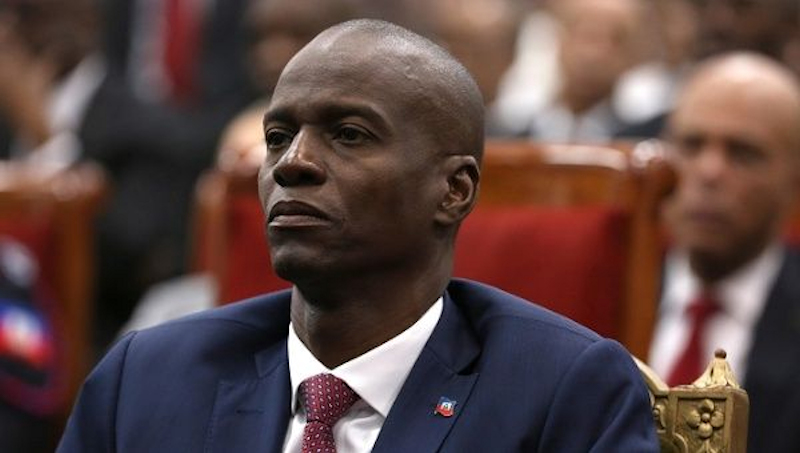
Claudy Gassant acquiesced, without saying a word, to this brutal dismissal through which President Moïse humiliated him. Jovenel Moïse had not forgotten that Gassant was one of the opposition’s lawyers during the election saga out of which he arrived in the National Palace in 2017.
Before we get to the bottom of what we might call “the Gassant case” or “the ULCC case,” a quick review of the personality and past of this former student of the Judges School in Bordeaux, France will allow us to understand that Claudy Gassant had no chance of lasting long as Director General of an institution whose primary mission is to combat corruption in all its forms within the Haitian government.
First, Gassant is hot-headed. He lets nothing pass without reacting on the spot. Although Claudy Gassant is down-to-earth and open to all conversations, he is a quick answerer and a hard-working go-getter. He is not afraid of anything or anyone.
But Claudy Gassant is not blunt and tactless, like former President Michel Martelly, quite the opposite. He is a well-educated and cultured lawyer, hence precise and meticulous. He perfectly masters his profession and is therefore respected by his peers without being a heavyweight in the courts. He is sometimes close to those in political power, sometimes close to the opposition, depending on the situation and Haiti’s political vagaries.
He has been the state prosecutor, a post which makes one prominent in Haiti. It is a very political position because the judiciary has very little independence despite great efforts in recent years, especially after the fall of the Duvalier dictatorship.
Claudy Gassant returned to the national stage on Dec. 3, 2019 when nobody expected it.
Thus, due to his temperament, Claudy Gassant does not last long in public office. He has been called “Mr. Ephemeral” because he is volatile, dramatic, and sometimes too outspoken, or, as we say in Haiti, a “choròf ” (show-off). Everyone in Haiti, at least Port-au-Prince residents, will long remember his short time as Secretary of State for Justice under the late President René Préval in the 2000s. Gassant is a performer; he likes to be seen. His motorcades across the capital left nobody indifferent and woe to the person who was in the wrong place at the wrong time when he was coming through town.
We also remember his public spat in a street of the capital with Assad Volcy (at the time a Presidential Advisor) over the murky case of a car which allegedly played a role in a kidnapping reported by the police. Gassant saw the Port-au-Prince Prosecutor’s Office as his personal asset, which he called “my prosecutor’s office.” But, he is above all a man of the law and did not tolerate any disorder in “his” prosecutor’s office.
For him, the office was a temple, where the law was the only credo. Because of his particular outlook, Gassant annoys and upsets as many as he pleases in Haiti’s legal circles.
At one point, he was promised a political career at the highest levels, but, until now, he prefers to act as a state servant to various politicians until they humiliate him and cast him aside like a used paper towel. Claudy Gassant never spends even a year in a public service post. Some say he is unstable, while others believe he is not made for this kind of job, which doesn’t stop him from always agreeing to serve a President who wants to hire him for his skills and his incorruptible reputation.
Thus, in the midst of a political crisis between the opposition and President Moïse, Claudy Gassant, who had been out of the public eye for some time, made his big comeback onto the national stage on Dec. 3, 2019 when nobody expected it. Jovenel Moïse was on the defensive and knew that Gassant’s appointment to head the ULCC would not go unnoticed.
In fact, nominating the well-known Gassant to the post had only one goal: to silence the widespread criticisms that Moïse’s presidency does nothing to fight corruption and that the President and his entourage were completely implicated in criminal acts like those of PetroCaribe and Dermalog.
But, Jovenel, whom the opposition had on the ropes, also wanted to send a strong message to the nation that he wants to fight against corruption. Who better to appoint than the very respected anti-corruption crusader, Claudy Gassant? Thus, the president surprised everyone by calling on the former prosecutor. And, at the very least, his move briefly worked, by sowing confusion, doubt, and curiosity among his opponents and even his supporters, who thought this choice was rather risky for the President. Because the ULCC’s new Director General would not be long in making it clear that he was not there to be a figurehead, and even less to please the President or cover up his alleged crimes. He was there to serve the Republic, period!
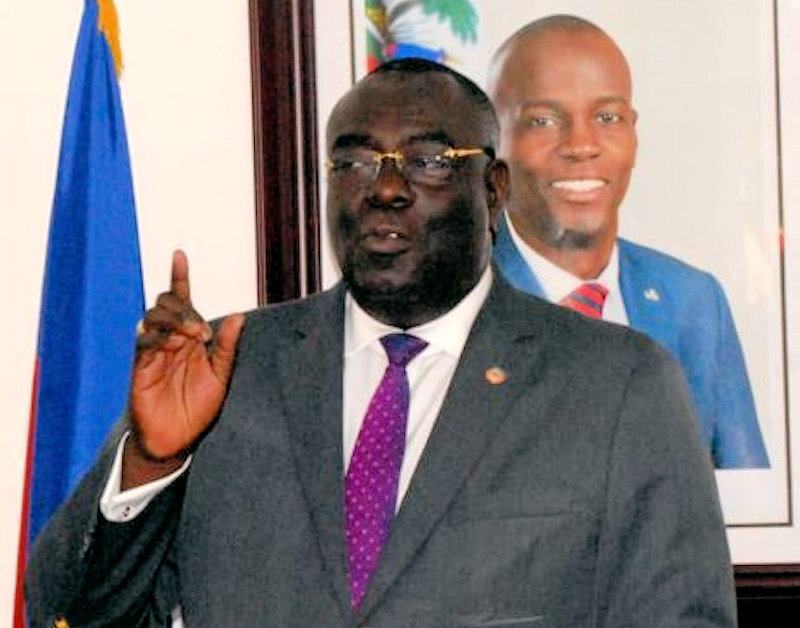
Gassant took up corruption investigations which were already pending, such as the case of the Haitian Embassy in Santo Domingo, Dominican Republic where, it seems, everyone was up to their neck in corruption. In typical fashion, the new ULCC Director-General plunged headlong into the matter, publicizing the corruption he was uncovering, a way to make local and international public opinion his witness. His first big decision was to publish the names of six Haitian Embassy employees in Santo Domingo whom he suspected of being involved in a vast corruption enterprise. The publication of this list created a two-fold scandal. First, the general public discovered the names of Haitian officials linked to corruption in Santo Domingo. Secondly, the Haitian Foreign Minister, Bocchit Edmond, was outraged by Gassant’s procedure vis-à-vis these state employees and issued a public retort.
It was the beginning of the conflict which would lead to Gassant’s dismissal. Next, the matter would be amplified by another case emanating from the Dominican Republic. It involved the arrest at the border of the head of the Consulate General of Haiti in Santiago, Mrs. Judith Exavier, who allegedly tried to return to Haiti on Dec. 7, 2019 at the wheel of a vehicle reported to and tracked by Dominican police and even the U.S. Drug Enforcement Agency (DEA). For Gassant, this was just too much to tolerate from the diplomats based in the DR. He wanted to address these cases aggressively and quickly to prevent the further tarnishing of the image of Haitians and Haiti before the Dominican authorities and the Dominican public, whose feelings towards Haitians we know. While these two issues became the burning fuse which would blownup Gassant, he was also focusing on cases like the PetroCaribe corruption, which he promised to get to the bottom of and make heads roll.
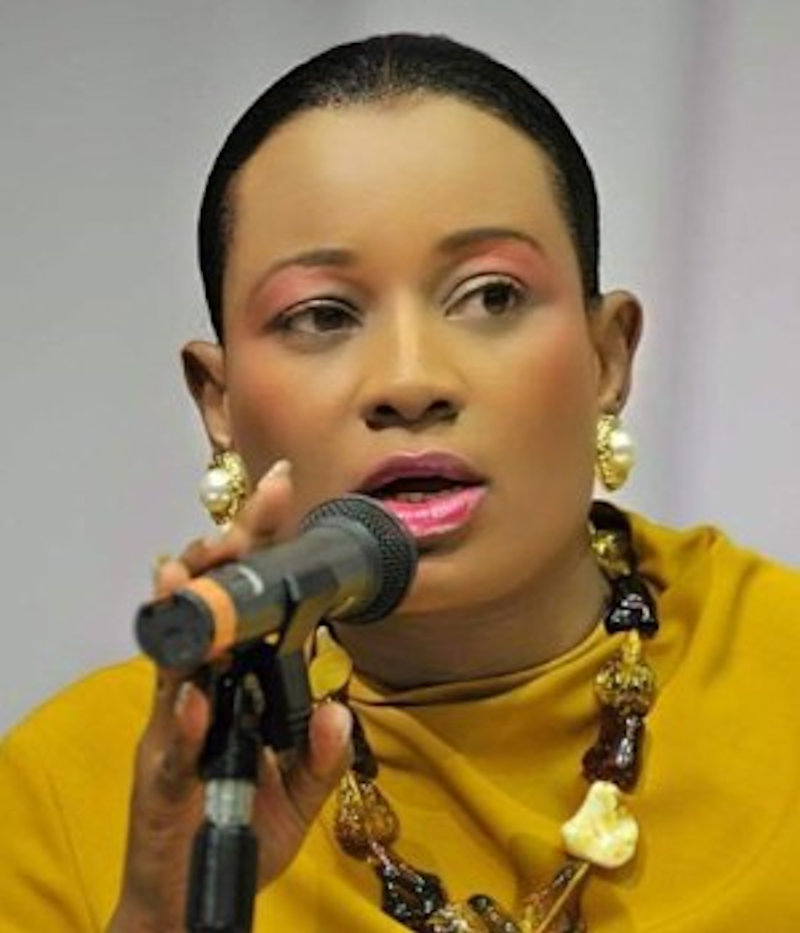
He also wanted to take a close look at the record of SOGENER, the private electricity company of the Vorbe family which entered into conflict and litigation with President Jovenel Moïse on behalf of the Haitian State. The ULCC, at Gassant’s request, wanted to open an investigation into this conflict between the state and SOGENER. But, to everyone’s surprise, state lawyers opposed the initiation of ULCC’s investigation into this case.
Finally, there was ULCC’s ultimatum to all former senior officials, parliamentarians, and ministers to bring their declaration of assets as soon as possible before and after the end of their mandate or mission. For some, this was the straw that broke the camel’s back because, according to them, this last request would directly impact President Jovenel Moïse in the future.
So let’s come back to the principal reasons why Claudy Gassant was fired from the ULCC in less than two months.
If the case of the suspect vehicle from the Dominican Republic found in the hands of a Haitian diplomat on the border was the dispute’s trigger, it was the case of another diplomat of dubious nationality that truly created the rancor between Gassant, the Foreign Minister, the Port-au-Prince prosecutor, the Justice Minister, and the President. This diplomat, who was the number two at the Haitian Embassy in Santo Domingo, is called either Kerby Alcantara or Alcante Désormeaux. This Haitian official has dual nationality, which is illegal under the Haitian Constitution. He holds passports of both Haiti and the Dominican Republic. Besides being the second Counselor in the Haitian Legation in the Dominican Republic, he is a well-known businessman who takes care of his businesses in Santo Domingo.
A Haitian diplomat cannot under any pretext exercise another profession in a country where he is accredited. However, this gentleman, who is both Dominican and Haitian, was indeed quietly carrying out the two activities at the same time and in complete illegality without this upsetting either the Haitian Chancellery or the Dominican authorities. Being a Dominican citizen, he had no problem doing business in his country. Except that, for Claudy Gassant, it is totally incompatible with his status as a diplomat and of an official of the Haitian State. Furthermore, the man name Kerby Alcantara or Alcante Désormeaux is cited among the Haitian Embassy’s employees as allegedly being deeply involved in corruption. For starters, the ULCC had asked Foreign Minister Bocchit Edmond twice to make this official available to the ULCC to be interrogated about the accusations of corruption and also to provide information about his true nationality. But Claudy Gassant’s requests were ignored. However, Gassant is not one to drop a case, even if it is extremely difficult.
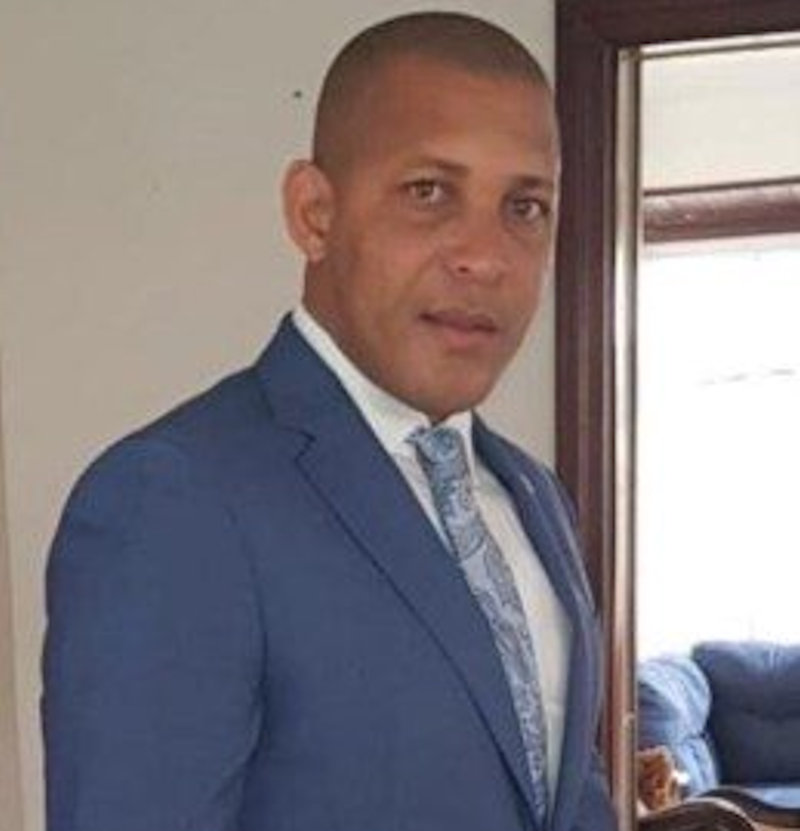
So, he shifted into a higher gear. Gassant filed a complaint against Foreign Minister Bocchit Edmond for obstruction of justice and issued an order for the arrest of this Alcante or Alcantara (who thought he was above Haiti’s laws) on charges of forgery. As soon as he got to the Haitian border, Alcantara was arrested by the Haitian Police and turned over to Haitian justice officials. But, but on his arrival at the Port-au-Prince Prosecutor’s office, Kerby Alcantara or Alcante Désormeaux was promptly released by the deputy prosecutor, Mr. Jeanty Souvenir. One can imagine the anger of the ULCC’s director, who could not understand the decision of the Prosecutor’s Office. He protested to the deputy’s hierarchical head, the Justice Minister. Claudy Gassant then issued a second arrest warrant against the official suspected of corruption. Alcantara was arrested a second time at the Toussaint Louverture International Airport in Port-au-Prince. Without delay, the same deputy prosecutor, Jeanty Souvenir, immediately released him.
Enraged, Gassant entered into open and public conflict with this deputy prosecutor, the Justice Minister, and, as always, the Foreign Minister. In the process, Gassant organized a public event (in which President Jovenel Moïse participated) to explain the activities, mission, and role of the Unit for the Fight against Corruption (ULCC). In fact, the whole purpose of this Open Day on the ULCC was to inform the general public about the ULCC’s activities and its fight against the scourge of corruption, which has so deeply infected Haiti’s public institutions. But, in this fight, Gassant seems to have been unaware that he was the only one to believe that he could emerge victorious in a struggle in which he had no serious support, perhaps only its facade, from Haiti’s public authorities.
By giving priority to this case of corruption at the Haitian Embassy in Santo Domingo, Gassant did not know that the most powerful members of Haiti’s administrative and political system were going to block his efforts. Gassant wanted to go fast, very fast, perhaps too fast, according to most of his friends, in his quest to get results in his crusade against the cancer of corruption. He showed that in very little time the ULCC, if the government gave its full cooperation, could expose and greatly reduce Haitian government corruption. In just a month and a half, he highlighted what prevents institutions from doing their work. If Gassant had been content to simply enjoy the privileges of his office, he could have spent, like all his predecessors, years in this post without proving that the ULCC could do something serious.
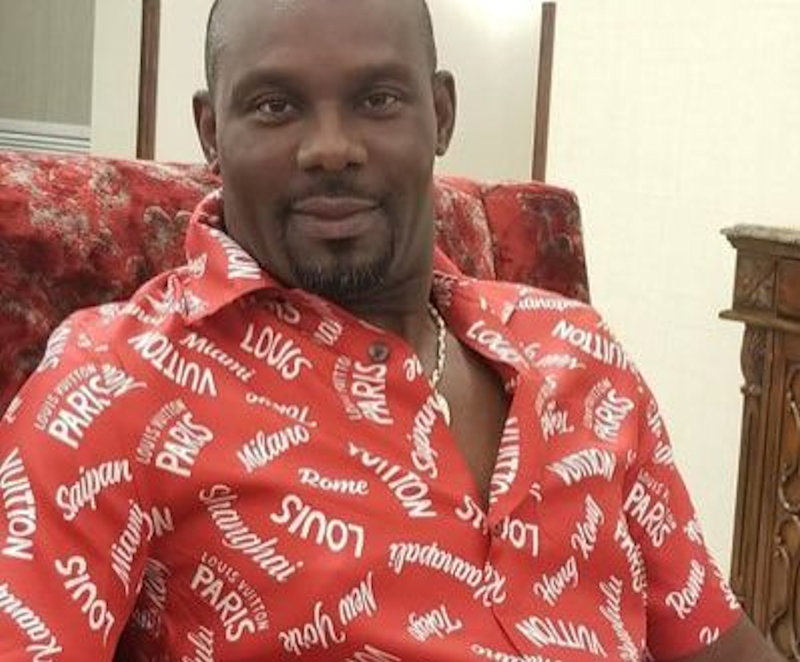
But, it is not in his nature to remain locked up in an office without doing anything or being useful. He feels obliged to produce results, not the reverse. As usual, in record time, Gassant was removed from his post for poking around in all these sensitive matters.
But in less than two months, he also liberated the ULCC from its complete anonymity and made the general public aware that corruption is not inevitable. He showed that it can be overcome with the will to do the right thing. It was a feather in the cap of this colorful character, whom some said had betrayed the cause by accepting to work for Jovenel Moïse’s government, which thought it could disguise its corruption by buying him cheaply and hiding behind his personal integrity. But Gassant did not fall into the trap that the National Palace had set for him. Gassant came out of this episode holding his head high and has even earned greater respect from his peers and the population. The government has not even found an acceptable or valid reason to explain the reasons for his dismissal.
In an effort to hide his brazen dismissal of Gassant, President Moïse has ended the mandate of all the actors in the Haitian Embassy dust-up.
Ms. Judith Exavier was dismissed from her post by a terse letter saying: “It has been decided to end your functions as head of post at Haiti’s Consulate General in Santiago.” Meanwhile, deputy prosecutor Jeanty Souvenir, who twice freed the Haitian/Dominican businessman/diplomat, was suspended from his job. Justice Minister Jean Roudy Aly wrote: “This is to inform you that it has been decided to suspend you without pay, pending the result of the investigation being carried out into the facts for which you are reproached.”
Gassant’s appointment to and then rapid removal from the ULCC will remain an indelible stain on Jovenel Moïse’s presidency
And finally dismissed, of course, was the man strongly suspected of corruption and using several travel documents, the second Secretary at the Haitian Embassy in the Dominican Republic, Herby Alcantara or Alcante Désormeaux. Recall that this gentleman, whose true identity remains unknown, is registered as a citizen under the Dominican Registry No. 224- 0036121-2 of the Dominican Interior Ministry.
If Gassant’s firing as ULCC chief was not taken into account in the annual report of Transparency International’s Corruption Perceptions Index in the world, it will be scrupulously analyzed in the future. Already in this year’s report, Haiti placed 168th out of 180 countries, which is to say that the world looks on Haiti as one the most corrupt countries in the Americas.
One thing is certain, Gassant’s appointment to and then rapid removal from the ULCC will remain an indelible stain on Jovenel Moïse’s presidency and the administration of Jean-Michel Lapin, his acting Prime Minister. This brutal and untimely dismissal proves one thing: that Haitian leaders are not yet ready to accept and allow the anti-corruption unit to operate independently as long as they want to protect their asses. By firing Gassant, President Jovenel Moïse makes a mockery of his posturing to fight corruption and revives attention on the accusations of corruption which were made against him well before his accession to the presidency.
Also read about Jovenel Moïse’s firing of Sonel Jean-François, the head of Haiti’s other anti-corruption unit, the UCREF.


